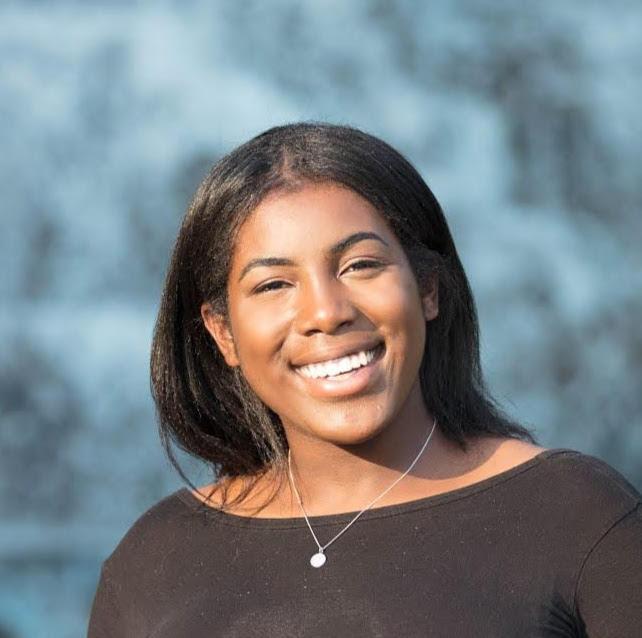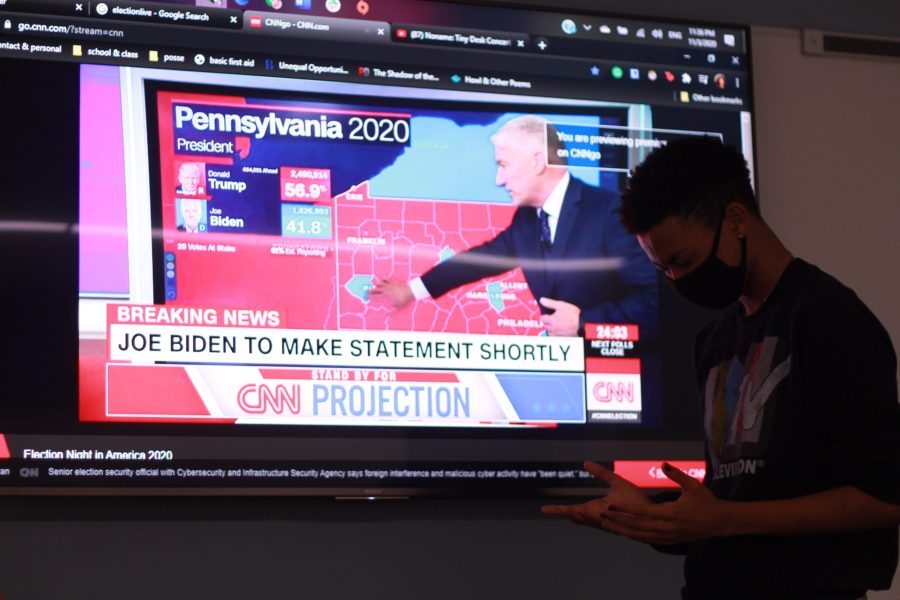Similarly to 2016, the fate of our presidential election will largely come down to how the Midwest performs. Unlike in 2016, absentee and mail-in ballots play a bigger role in the fate of the nation than ever before. Since the arrival of COVID-19, but even before, this election has promised to hold much uncertainty and influence for the years to come. Many liberals believe that the results will greatly affect racial issues in America, the country’s international standing, climate change, immigration, marriage equality, women’s rights and many other contested issues that have found themselves at the forefront of the national stage.
When hearing from Carls about the precarious nature of this election, it is clear that nothing is certain.
Sophie Perfetto ’23 said on Wednesday, November 4, “Last night was incredibly stressful. I knew there was a good chance that the election wouldn’t be called last night, but I had no idea how nail-bitingly close it would be.”
“While Biden is now pulling ahead in the lead, last night [Tuesday] a lot of things were looking pretty iffy,” she continued. “It really was kind of like reliving 2016 all over again.”
Perfetto shares this view with many others who found themselves worried on the night of November 3 that Trump would gain control of the Midwestern states. This was somewhat swayed by the morning of the 4th, which showed Biden projected to win in key states like Wisconsin and Michigan. Both states were called for Biden later that day.
Siena Leone-Getten ’21, president of the Carleton Democrats, believed like many others that Biden would beat Trump by a large margin. “I’ve found it difficult over the last few months to not get swept up in the excitement among Democrats that we could take the Senate, the White House and flip our state Senate here in Minnesota, so I honestly—and despite my best interests—had decently high expectations going into the night,” she said.
With a dramatic increase in early voting, which tended to favor Biden, Democrats entered the night of the 3rd believing they would win by a considerable amount.
While Democratic voters were up considerably from the 2016 election, building back the “blue wall” in the Upper Midwest, it is clear that the nation certainly was not ready to decisively reject Trump, like some analysts believed it would.
Jancyn Appel ’23, who planned the recent Black Lives Matter march through Northfield, is more interested in the long-lasting impacts of activism and awareness as it pertains to this election.
“I’d say I’m on edge, but it’s been very interesting to see how engaged people are. Aside from the performative involvement of screaming at people to vote and reposting infographics on social media, people are actually getting into the nitty-gritty and understanding the functionality of the political system.”
“This involvement could lead to necessary changes like gerrymandering prevention policies and the elimination of the electoral college,” she continued. “I’m not optimistic, but it is interesting.”
It is clear to many Carls that no matter who wins, the fight is not over for either side. Andrew Farias ’21, Carleton Student Association (CSA) president, said, “We still have so much work to do, and as tiring as it can be to constantly fight for our existence in this country, we can’t stop now. We would do a disservice to future generations if we stopped now because we can make changes that will impact their lifetime.”
Many progressive voters, who find themselves settling for Biden instead of standing behind a candidate who they believe will enact institutional change, hold on to the idea that regardless of the outcome of the election, the country will still be as polarized and broken as ever.
“Voting was a first step. There is more work to do now to help shape Northfield, the state of Minnesota and the entire country. If Biden does win, we still have a ton of work to do to hold this administration accountable on progressive issues,” said Leone-Getten.




Farias said, “I hope for a Biden win, but I long for a world where politics do not define whether or not someone can feel safe in their own skin. I long for a country wherein political decisions do not impact whether or not a child will have access to a quality education, healthcare or even clean air to breathe and water to drink when they grow older. More than anything, I long for a world where no one feels powerless in matters that so greatly affect their lives.”
For many Carls, there was a fear that Trump would claim victory before all the votes had been counted. According to Perfetto, “I was absolutely unsurprised by Trump’s response—I fully expected him to try to undermine the integrity of the election, and he did not disappoint with his late-night speech in which he claimed he had already won.”
“I’m glad that it seems like most people, including well-known Republicans like Chris Christie and conservative commentators like Ben Shapiro, aren’t falling for his attempts at undermining the election and are calling him out on his immaturity and unprofessionalism,” she continued.
While Trump has not been successful in claiming victory, he has filed legal action against many states that he needed to secure a majority over Biden, including Wisconsin, Michigan and Pennsylvania.
Regardless of the results, Carls are hoping for the wellbeing of the Carleton community, as well as unity, solidarity and strength. Farias said, “While I have certainly spent many hours clinging to my phone, awaiting answers, I have spent many more worrying about our campus and country as a whole.”










